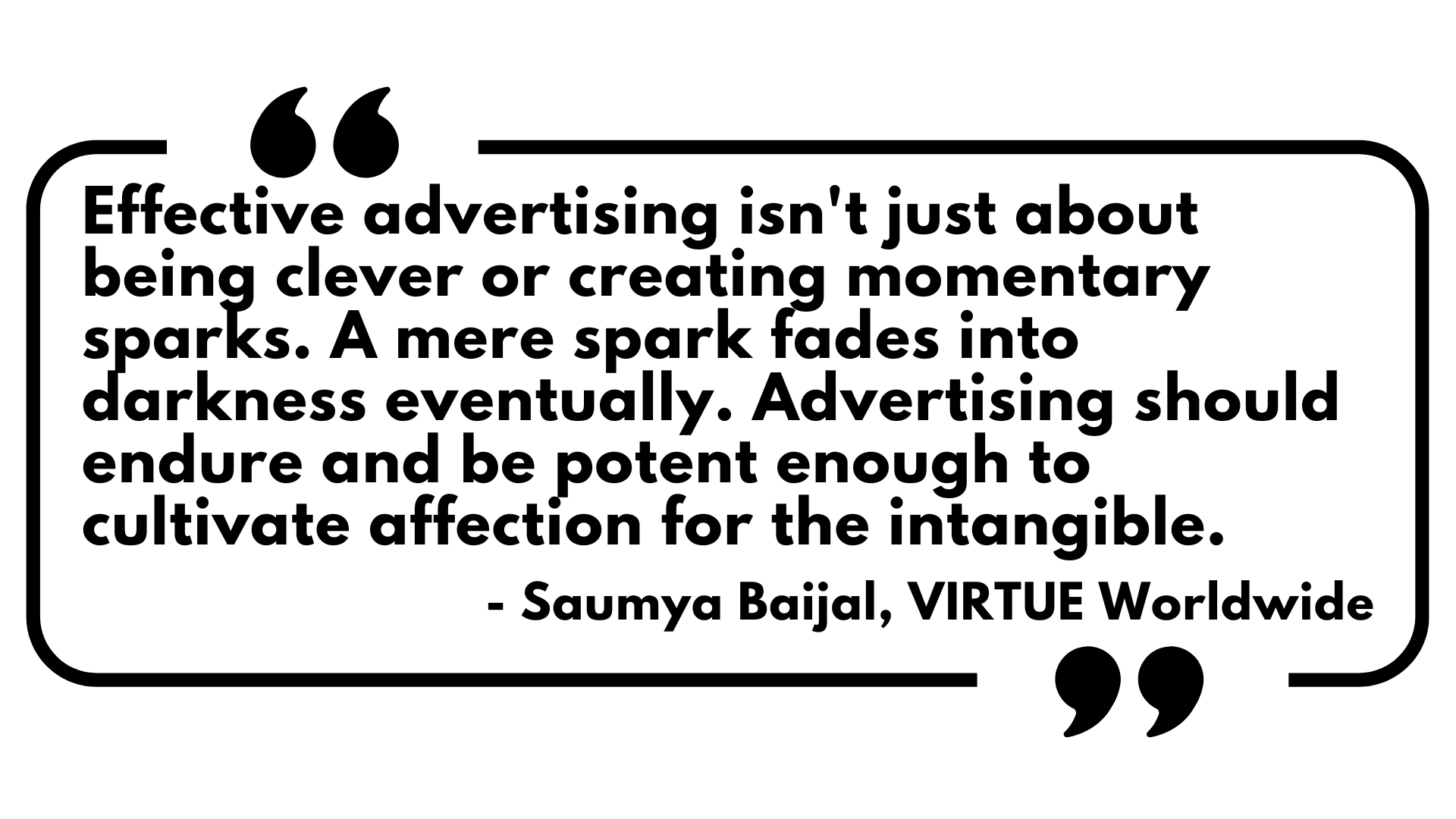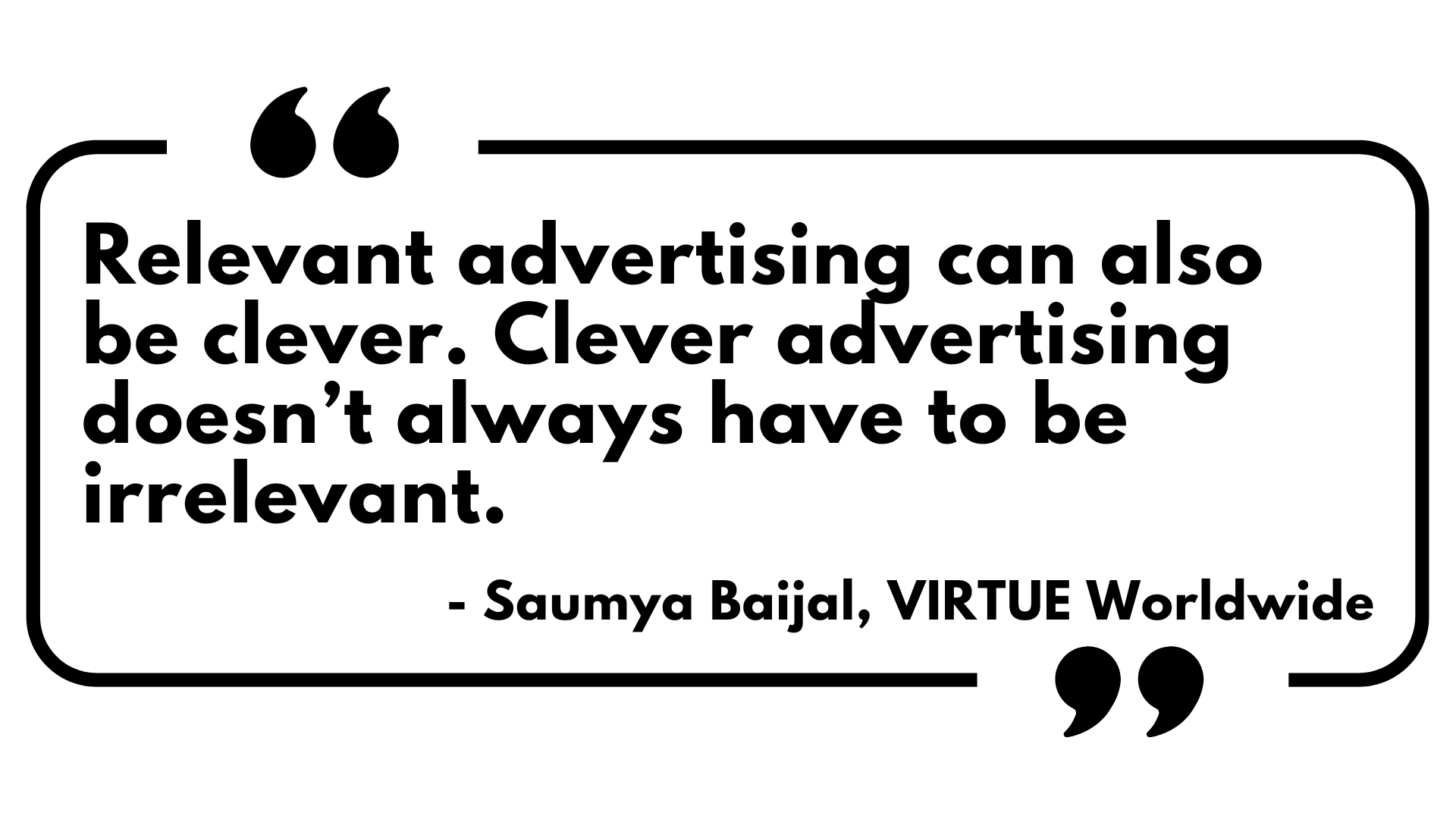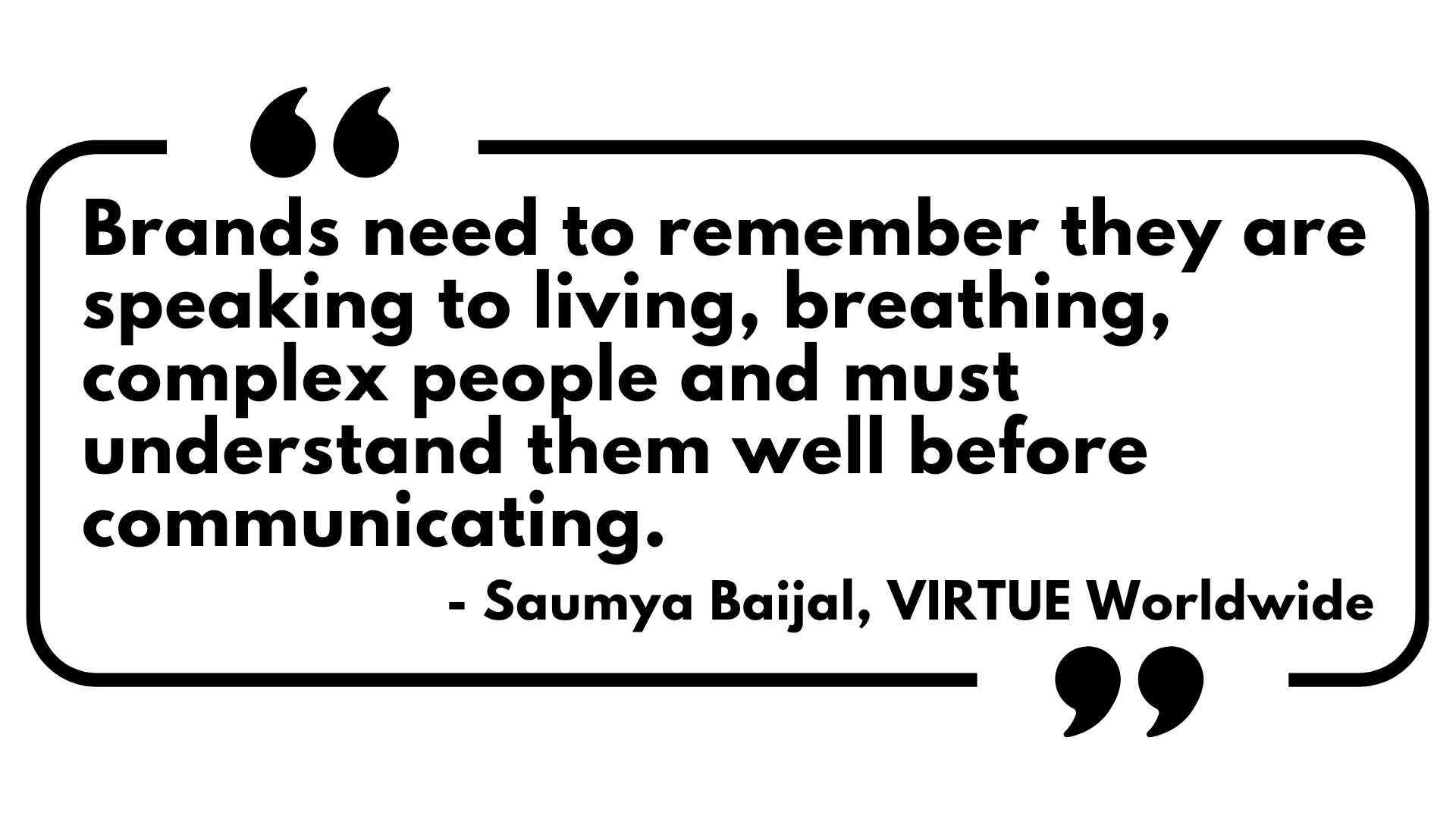
Congratulations on your appointment as Virtue Worldwide’s Strategy Director, India! Can you summarize your career journey in the industry over the past 16+ years, and outline the milestones and experiences that have influenced you?
Thank you so much. It’s been over 17 years now, yet it still feels like yesterday when I entered this world as a wide-eyed idealist. The joy of collaborating with numerous people, brands, and organizations has kept that idealism alive.
Every brand one works on becomes a milestone because of the immense trust and faith bestowed upon us as custodians. Shaping a brand’s identity within culture and in the hearts of audiences is a significant responsibility—one that I’ve cherished every minute of. The rigor I learned and practiced at Mullen Lowe Lintas Group remains invaluable. Our work for Akzo Nobel at Mullen Lintas Delhi stands out as a career highlight for me. Whether it was pioneering spatial autonomy for single women with Dulux Velvet Touch or the impactful Parul and Painter campaign for Aquatech, each piece was a milestone.
Being at VIRTUE is also a definitive milestone. Working on incredible brands like Diageo and engaging in ‘inside culture’ thinking is both thrilling and challenging.

What is it about effective advertising that differentiates it from mere self-indulgent messaging that resonates with larger societal values?
Advertising must be effective. If it fails to achieve effectiveness, it simply doesn’t work. It should aim to change mindsets or behaviors or provoke introspection. Whatever it shifts, it must create an impact, carving out space for the brand in the minds of its intended audience. That’s why it’s essential. That’s why it matters.
Effective advertising isn’t just about being clever or creating momentary sparks. A mere spark fades into darkness eventually. Advertising should endure and be potent enough to cultivate affection for the intangible. This requires profound understanding and insights into the audience’s psyche. Does it address deep-seated desires or anxieties? Does it resonate with their daily routines? Does it forge connections in their moments of solitude? What does the brand enable them to do? How does it make them feel? Without answering these
questions, we end up with ads, not enduring brands.
Reflecting broader societal values is crucial for creating relatable work. However, it’s equally vital to articulate what the brand stands for and why it should matter to its audience, ensuring its relevance in cultural contexts. Central to effective communication, in my view, is its gaze
and voice. At VIRTUE, we firmly believe in adopting a sensitive approach, avoiding appropriation in the stories we tell.

The art of advertising goes deeper than just a clever line or a chuckle. What do you do to make sure that your campaigns evoke deeper feelings in your consumers?
That answer always lies with the consumer, deeply rooted in the insight that matters. I try my best to find that insight by speaking to customers every single time.
Many years ago, when I was a student, one of our lecturers said, “Advertising doesn’t happen in a closed room.” I have carried that wisdom with me for 17 years. For me, consumer conversations are the richest repository of insights that propel my work into being effective. This is a process I am rigid about because, at the end of the day, we are talking to people. We must respect them as the wonderful, multidimensional, layered individuals they are and say something worth their attention.
At VIRTUE, we also look at counterculture to inspire us. What new stories at the peripheries can we bring into the mainstream, and why should that matter? We ask ourselves these questions every day. Brands must gain cultural capital, which we believe happens through insightful, culture-based thinking that forms a deeper connection with audiences.

How do you strike a balance between creativity and relevance to maintain the importance of relevant brand promises over clever advertising?
Relevant advertising can also be clever. Clever advertising doesn’t always have to be irrelevant. For me, relevant advertising always stems from the business objective and then the audience. Together, these define the role of the brand. This combination creates advertising that matters. Advertising that matters can be brave and clever too, but it must be rooted in compelling ‘whys’.
For consumers, brands provide a source of hope. In your opinion, what can brands do to craft messages that fulfil this purpose?
To be honest, I am not sure if it’s always about hope. Brands offer security, love, a balm on wounds, a little hand to hold in loneliness, a smile, some relief—so many emotions. Brands need to remember they are speaking to living, breathing, complex people and must understand them well before communicating. They should avoid being patronizing or condescending. Brands need to change their perspective every time they speak to an audience, becoming one of them before deciding what to say. That’s what I believe and practice at VIRTUE. Only by speaking to your audience as an equal, as one of them, can you create intimacy in conversations.